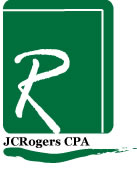Surviving The Trust Fund Penalty
Trust Fund Tax
Trust fund taxes are the employee's withholding taxes and their share of the FICA and Medicare tax on wages that employers withhold and remit to the government every pay period. These taxes represent usually about 65% of the total payroll tax liability that employers pay to the government each pay period, reporting the taxes on the form 941 quarterly payroll report.
The Failing Business Trap
Businesses fail when the cash flows of the business operations are insufficient to meet the current liabilities that need to be paid each month. When this trend continues over time, unpaid liabilities pile up and expenses are cut in desperation to keep things running. Liabilities that are vital to keeping the business running such as the electric bill and wages are paid, but taxes and other government bills are usually not paid. After all, if you don't pay your electric bill, the power will be shut off and you will be out of business the next day. Same with wages, your skilled workforce will leave and you will be shut down. You have just enough money to make your net payroll each month to keep your employees happy. One of the first things to go is the payroll tax, which is just another tax bill that the government demands of small businesses, and it can be a substantial monthly expense.
Because you have built this business from the ground up, you believe that things will turn around and your problems will work themselves out over time when sales increase. Relief is just around the corner and you borrow to meet your net payroll and other vital operating expenses until your credit is depleted. Unfortunately, just about every business that has unpaid payroll tax liabilities has the same sad story. The most important thing that a business owner can do in this situation is to recognize that what you are doing is not working and that you are stuck in quicksand. You need a financial expert like me to advise you on what to do to survive. Call me, consultations are free.
The Trust Fund Recovery Penalty IRC Section 6672
As the business owner, you formed this separate business entity to shield you from personal liability (corporate veil) and would not think that you could be held personally responsible for the payroll taxes. Things are bad, and the business that you put everything into is failing.
Enter the IRS revenue officer who will destroy your life. Every person who can be considered a responsible person that acted wilfully can have the trust fund recovery penalty assessed against them personally. This civil penalty assessment under IRC Section 6672 is a 100% penalty that becomes a personal liability. Next thing you know, the IRS sends you a letter, demanding payment from you for the trust fund taxes of the business plus penalties and interest. If you don't pay, liens will be filed against you and your bank accounts can be levied. Incidentally, this civil penalty is not dischargeable in a bankruptcy proceeding. If there are five responsible individuals identified by the IRS, then each one will be assessed 100% of the penalty. The IRS does not care, they just want their money. Additionally, with the filing of the liens, nobody can get credit to borrow money to pay business debts, you're dead in the water.
Wait one Minute: I'm just the Bookkeeper; the husband of the owner; a private lender
As the bookkeeper, you decided which bills to pay and thereby intentionally paid the utility bills instead of the IRS payroll tax liability. You are deemed responsible and because you acted wilfully, you can have the civil liability assessed against you. Even If you were just following the direct orders of the owner, you may still be held responsible anyway by the IRS.
The husband of the owner wife (CEO), hardly ever comes into the business and really does not have anything to do with the daily operations of the business. He was listed as an officer with the Secretary of State by the owner spouse, to make him feel important. He was also listed as a signer on the business checking account, although his wife would never let him sign checks. He was told that it was necessary in case she dropped dead at work one day. He has never signed a check and has never had anything to do with the business operations. Because he is listed as an officer, he is automatically deemed a responsible person and because he is a signer on the account, he is deemed having the ability to pay the government. He has the status, duty and the authority to pay the IRS. He may be assessed the civil penalty and held personally responsible for the liability by the IRS.
You are a friend of the CEO that has lent money to the business, knowing that the payroll tax liability has been unpaid. You are aware of the fact that the money you lent the business was used to pay the electric bill and other utilities instead of the IRS. You can be held responsible and assessed the civil liability along with the other responsible parties up to the amount of your loan.
Buying An Existing Business That Owes Delinquent Payroll Taxes
If you buy an existing business that owes delinquent payroll taxes, you can be held personally liable for the entire past due amount. As the new business owner, you have the status, duty and the authority to pay the IRS, and cash money and liquid assets that were available to pay bills or other creditors will be applied to your trust fund liability. Moreover, if you pay the utilities and other essential bills, with funds available at the time of your purchase, you are increasing your personal trust fund liability.
What Every Business Owner Should Do
1- Since wages that you pay are assessed a payroll tax, and since you don't have the money to pay the tax, cut your wage expense by the payroll tax amount immediately. You can either fire employees or cut their pay to facilitate this. Let them collect unemployment at the government's expense. Do this now, before the liability gets too big to manage. Most businesses wait too long to make this change and when they do, its too late to pay off the accumulated liability. Enter the trust fund recovery penalty and financial ruin.
2- Once equilibrium is reached where the bleeding has stopped, enter into an installment agreement with the IRS to pay off the remaining liability at the business level. The IRS refers to this as an "In Business Express Trust Fund Agreement (IBTF)."
3- Never fail to file the payroll tax returns because you do not have the money to pay the tax listed on the form 941 return. Full filing compliance is a requirement to entering into a payment agreement with the IRS.
4- Penalties can kill you, so be aware of the damage. The failure to pay penalty for payroll taxes is 10% of the total payroll for the entire quarter. Add the failure to file penalty and you are looking at borrowing large sums of money to just pay the regular penalties. The trust fund penalty is assessed on top of all the other penalties and don't forget the interest charges. The lien they filed against you will ensure that you won't be able to go to the bank to borrow any money to pay the penalties, so now what do you do.
Long Term Answers
1- Assuming you are not going to beat the tax assessment, let me help you get some relief from the IRS. I may be able to stop the collection action and help you get into a long term payment plan. Above all, I will tell you honestly what your options really are.
2- Cut your expenses to free up some cash. Using linear regression analysis on your business expense accounts, I can show you graphically, where your expenses are too high, based on your own metrics. These expenses can be immediately identified and reduced to lower overall operating costs. This analysis may identify employee theft that has gone unnoticed for years. The root of the problem can be unrecorded sales (off book) and incongruent expense metrics or monies siphoned off by employees in a variety of ways (on book). You would be surprised how simple it can be to find money within your business where the long term effects can be substantial.
3- Cut your expenses to free up some cash. Are you operating within your industry specific metrics? Most industries publish statistics under your NAICS code and this information is available for comparison to your actual metrics. Let me help you find out what that difference is. One of the reasons that name brand franchisees are successful, is that they will tell you what your business metrics should be and you know exactly what to spend each month for each expense category. They will help you be successful in your new business environment. Unfortunately, most businesses do not have that support net to lean on, so lets create our own, based on your business NAICS code.


